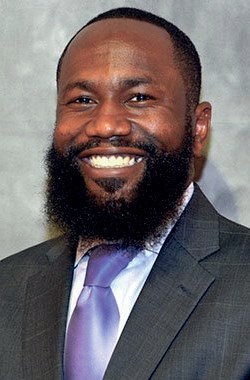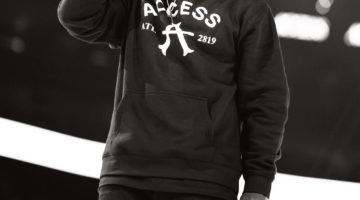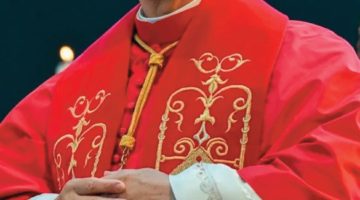I
In a pandemic-wracked year, religious leaders and spiritual counselors across the U.S. ministered to the ill, fed the hungry, consoled the bereaved. Some did so while recovering from COVID-19 themselves or mourning the loss of their own family members and friends.
At times, they despaired. So many people got sick, so many died, and these faith leaders couldn’t hug the ailing and the grieving, or hold their hands.
For safety’s sake, their congregations were kept away from in-person services for months, but the need to minister to them only intensified.
Amid the grief and anxiety, these faith leaders showed resilience and found reasons for hope as they reimagined their mission. Here are some of their reflections on a trying year.
LOSSES
Imam Ahmed Ali of IQRA Masjid Community & Tradition, a mosque and community center in Brooklyn, sprang into action in late March after a funeral home called asking for his help to retrieve from hospitals the bodies of people who died of COVID-19 and give them burial rites. Ali was scared of the fast-spreading virus, like others, but he felt a calling to serve God and his religious duty.
He began putting in volunteer shifts of up to 20 hours transporting bodies, putting them in freezers in the funeral home, washing and enshrouding them in white cloth and taking them to cemeteries for burial.
Typically he performs the janazah, or funeral, prayer only a few times a year. At the height of the crisis in New York City, he was doing as many as 20 in a single day, and over about three months, he oversaw or took part in nearly 300 burials in all.
“It was a really challenging time, and it was a great loss for every community,” Ali said. “I pray that we don’t have to see that kind of pandemic again.”
Friendswood United Methodist Church, in the suburbs of Houston, has been spared a heavy death toll. But one active member of the 900strong congregation who did die of COVID-19 was “a pillar of the church” who served on many of its boards and committees and won friends for his good humor and generosity, said Jim Bass, the pastor.
“He was 74 but no underlying health conditions that we knew of,” Bass said. “When he became sick, for us in the congregation it really hit home.”
ADJUSTMENTS
Like thousands of houses of worship nationwide, Valley Beth Shalom, in the San Fernando Valley area of Los Angeles, shifted swiftly to online services. Rabbi Noah Farkas and his team launched what they called a “war on isolation,” including a new over-thephone buddy system to connect isolated people starved of human contact. Volunteers selected congregation members whom they called at least once a week, and friendships sprang up between 20-somethings and octogenarians.
With no in-person worship, Farkas encouraged community events respecting health guidelines. For the recent Purim holiday, the congregation staged a drive-through carnival in the parking lot with about 160 families taking part.
“We’ve learned a bunch,” Farkas said, “but if I had to pick one thing, it’s that we didn’t give up.”
Friendswood Methodist spent more guished question to Roman: Why did God let her otherwise healthy, vibrant mother die? The chaplain couldn’t comfort the woman as she would have done pre-pandemic: by holding and squeezing her hand.
“It was one of those moments that I resent the inability to offer support in the many ways that I used to be able to,” Roman said. “I had to try to have my words do the embracing.” She and others have had to learn to transmit love or support via digital screens and through face shields and masks.
“We all rose to the challenge,” Roman said. “We were drafted into this war.”
GEORGE FLOYD
Christopher Johnson, an assistant pastor of Good Hope Missionary Baptist Church, said his Houston congregation was already suffering from lost social interaction, vanished jobs and food insecurity when it was dealt a new blow in May by the death of his boyhood friend George Floyd at the hands of a white police officer in Minneapolis.
Johnson remembered Floyd as a respected community member who helped host a party at the church with free AIDS testing when Houston hosted the Super Bowl in 2017.
Johnson said Floyd’s death, which sparked nationwide protests and awakening on racial injustice, had a special impact in part because it occurred amid a pandemic wreaking a disproportionate toll on African Americans.
“People had to take a pause, and it is in that pause that we realized that the world had changed,” Johnson said. Johnson said his church responded to the pandemic by working with local leaders to provide personal protective equipment and COVID-19 testing for the community. They used radio shows to discuss health disparities, vaccinations and the recent lifting of a statewide mask mandate.
The pandemic, Johnson said, “has called us to rethink and re-imagine what our philosophy of ministering really is in the age of COVID.”













No Comment